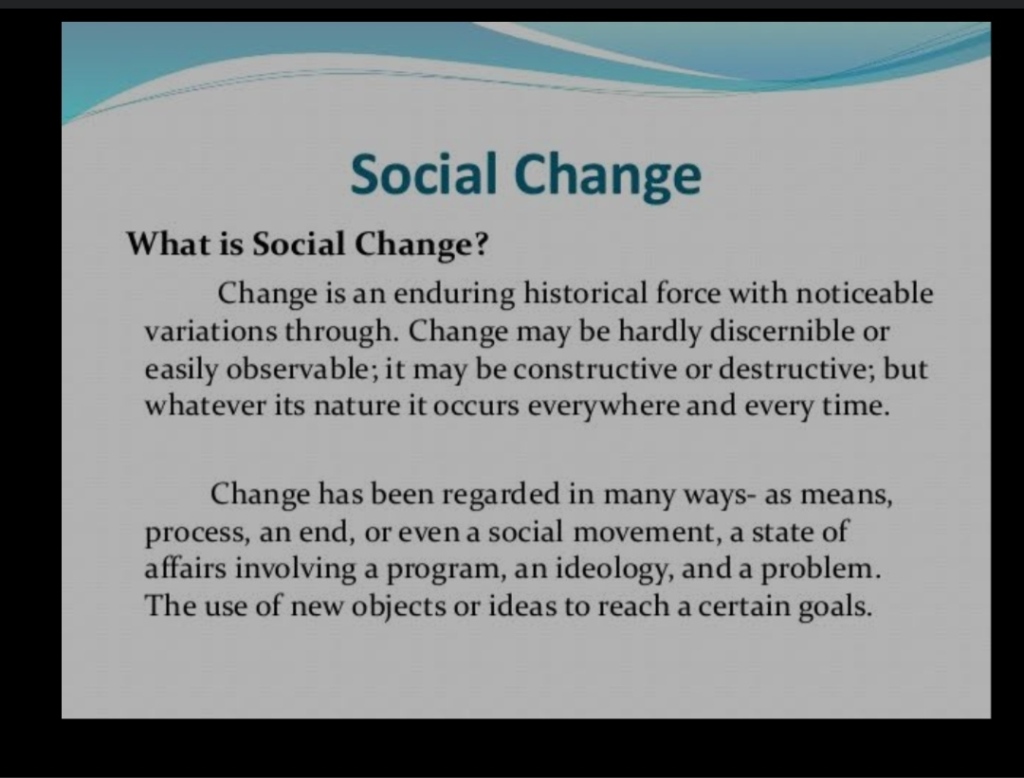Social change refers to the transformation of cultural, economic, political, and social institutions and relationships over time. It can involve shifts in values, attitudes, and behaviors, as well as structural changes in societies, such as the development of new technologies or the formation of new political systems.
There are many factors that contribute to social change, including technological advances, economic shifts, demographic changes, and political movements. These factors can interact with one another and produce complex and sometimes unexpected outcomes.
One important factor in social change is the role of social movements, which are organized groups of individuals who work together to bring about social, political, economic, or environmental change. Social movements can be driven by a variety of motivations, including a desire for social justice, equality, and human rights. Examples of social movements include the civil rights movement, the feminist movement, and the LGBTQ+ rights movement.
Another factor in social change is the influence of cultural and ideological shifts. As societies change and evolve, so too do their values and beliefs. These changes can be influenced by a variety of factors, including education, media, and the spread of new ideas through communication and transportation technologies.
Political systems and policies also play a significant role in social change. Governments have the power to implement policies and laws that can have a major impact on society, such as policies related to education, healthcare, and social welfare. Political revolutions and regime change can also bring about significant social change.
Ultimately, the nature of social change is complex and multifaceted, and it is shaped by a wide range of factors that interact with one another in dynamic ways. It is a continuous process that has the potential to bring about both positive and negative consequences for individuals and societies.









